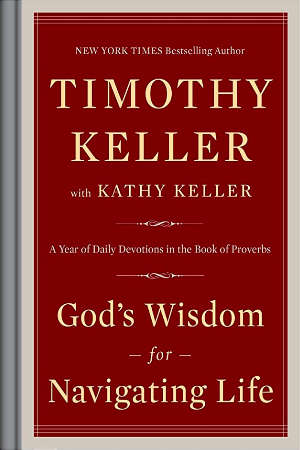There may be readers picking up this book who profited from our earlier yearlong devotional book, The Songs of Jesus. In that case especially, it is helpful to reflect on the differences between Psalms and Proverbs. The Psalms are filled with expressions of emotion, of pain, joy, and praise. They show us how to process our experiences before God.
Proverbs is a very different book. It calls us to study, to think, to learn the practical discipline of centering all our thoughts and actions on God. Indeed, one of the main messages of Proverbs is—you’ve never really thought enough about anything. Psalms is about how to throw ourselves fully upon God in faith.
Proverbs is about how, having trusted God, we should then live that faith out. If the Bible were a medicine cabinet, Psalms would be the ointment put on inflamed skin to calm and heal it. Proverbs would be more like smelling salts to startle you into alertness. Here are a few pointers for studying the book of Proverbs with profit.
Proverbs as Poetry
Proverbs is not a set of “simple steps to a happy life” for quick consumption. A proverb is a poetic art form that instills wisdom in you as you wrestle with it. As English readers we cannot receive the full force of the original, and yet we can still learn enough about the features of Hebrew poetry to discern layers of meaning that we would otherwise miss.
Perhaps the most fundamental mark of Hebrew poetry is parallelism. Two phrases, clauses, or sentences are brought into close connection with each other so that they modify and expand on each other. The second may magnify and extend the thought of the first, or it may instead offer a counterpoint that limits and softens the first idea.
In each case the two thoughts mutually clarify each other, sharpening our understanding. So Proverbs 13:6 says, “Righteousness guards the person of integrity, but wickedness overthrows the sinner.” The first clause helps us understand “wickedness” in the second clause more specifically as a lack of integrity.
Because of parallelism, the words “wicked” and “righteous” and “wise” and “foolish,” which show up constantly and (seemingly) repetitiously, actually mean somewhat different things in each proverb. We miss much of the meaning of a proverb unless we compare the clauses very closely and watch for the interplay between words.
Another prominent feature of Hebrew poetry, as in all poetry, is the importance of vivid images. A beautiful but foolish woman is like a gold ring in a pig’s snout (Proverbs 11:22); a lazy employee is like vinegar to the teeth (Proverbs 10:26).
Images and metaphors are always invitations to think out the many ways that “this is like that.” A thoughtful reader can list five, then ten, then more ways that the image explains the principle.







